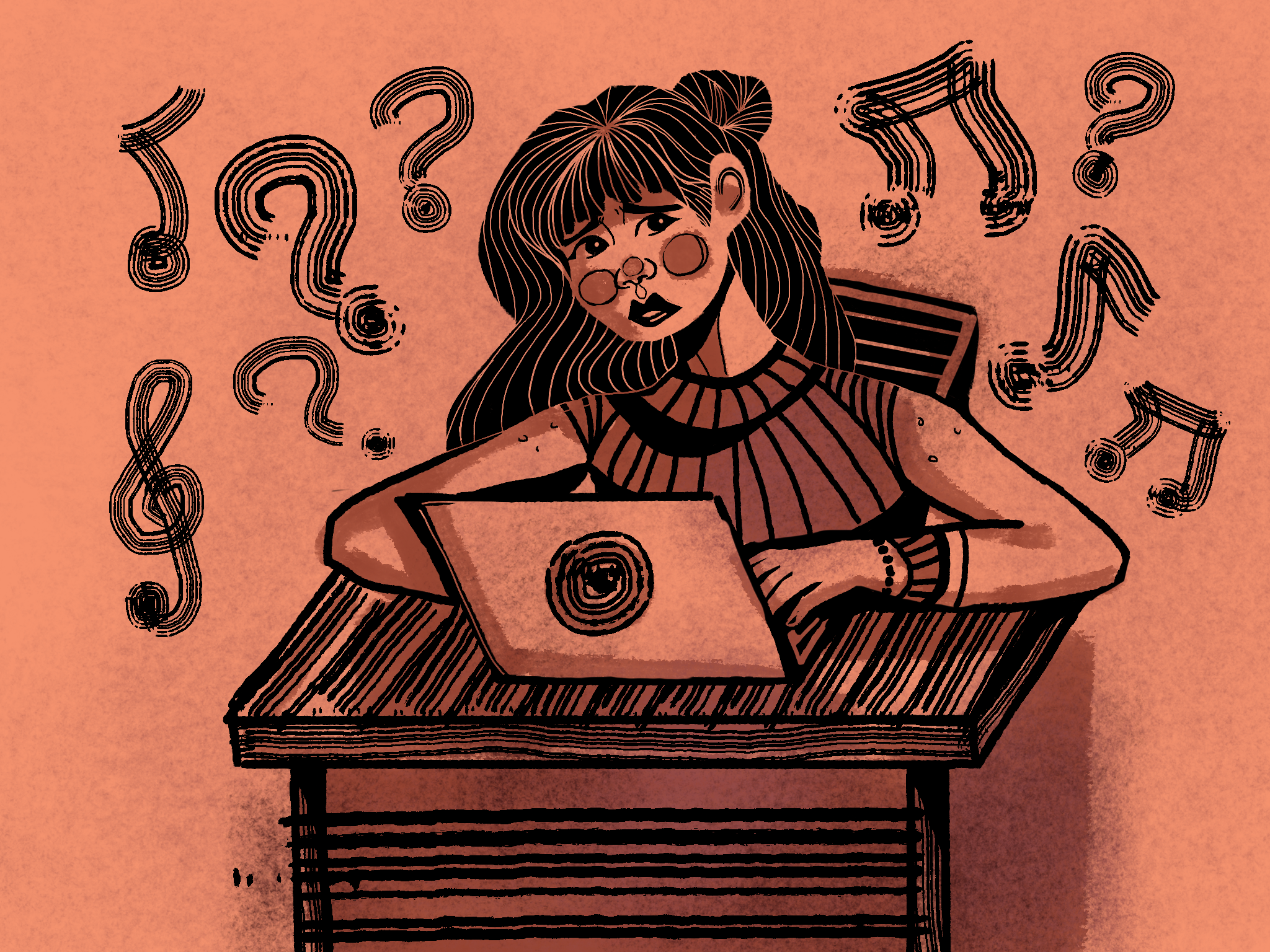All students are grappling with the hurdles of online learning right now regardless of course, but for students in courses such as music, visual arts, and drama, the traditionally physical elements of their subjects have brought additional challenges to the shift online. A piano student needs a teacher to guide their fingers over the keys; a drama student needs to look into another performer’s eyes for full immersion. These physical practicalities have always been a key factor in the teaching style, so removing that physical connection runs the risk of hindering the productivity of the student and creates further issues for learning in a virtual setting.
Despite the various challenges, many of the practical arts courses are adapting to these changing regulations. “In our university courses much of the teaching is usually done through lectures and seminars,” said Evangelia Rigaki, Head of Music at Trinity. “These can be effectively delivered online using the sophisticated tools available to us. Live video facilities are used from time to time to facilitate discussion and feedback.”
Many of the music students would see eye to eye with this statement and believe that the department is doing all it can to make the experience as smooth as possible. “If the end of last term is anything to go off of, the music department did a great job with providing the course entirely online. Although some modules were cut short and were unable to carry on with continuous assessment, communication between lecturers and students was strong,” said a Senior Fresh student studying music. “The lecturer for Aural and Keyboard, in my opinion, did a fantastic job when it came to setting exercises for homework to ensure we did not fall behind for the coming academic year. Our lecturer for Music Technology contacted us over the summer with information and set up Zoom meetings in order for us to air any concerns we may have had going into the college year.”
“Although the lecturers would be more than happy to run through homework with you over a call, it can never replace getting feedback face to face”
Evaluating whether or not online learning has been as productive as working on campus, the student said that it’s “better than nothing.” “Most modules require a lot of back and forth and although the lecturers would be more than happy to run through homework with you over a call, it can never replace getting feedback face to face.”
Social interaction is indeed sorely missed. But where there are challenges there may also be certain opportunities, and some believe that distanced learning can pick up the ball where physical learning drops it. “The upside to this is that we can re-watch pre-recorded events and revise with both videos and notes,” the Music student said. “Unfortunately, because I didn’t have Wifi at the time, it was difficult to keep up with lectures that would buffer for hours. The department was very understanding of this and ensured that the notes covered the video content.”
“I have every faith in the college that they are doing everything they can to ensure that module content will not suffer from the pandemic”
Indeed, poor connectivity is just one of the many issues students are facing this semester. Students will also face issues in regards to how they interact with certain clubs and societies, which has a direct impact on their overall course performance. “The choirs on campus will obviously take a big hit from this, and my heart goes out to the Junior Fresh students who won’t get the same experience we were all lucky to have,” the student said. “I have every faith in the college that they are doing everything they can to ensure that module content will not suffer from the pandemic.”
While not essential to the course by any means, clubs and societies are an excellent way for students to engage in their subject and really hone in on their skills. For example, a music student is better able to perfect their skills if they are also a member of the choral society or in an orchestra. It is that extra practise that the students are missing out on due to the pandemic. The same can be said for drama students, who cannot hold plays as further practise for their acting skills. By missing out on this extra engagement, they stand to have an incomplete experience with their course material.
It cannot be denied that lecturers are trying their best to make up for the lack of social practicalities, but even with the necessary technology and systems in place, nothing can replace that face to face feedback. The larger sacrifices that the students are having to make come in the form of shortened modules and cancelled assessment, as well as their interactions with various societies, which are needed to perfect their skills. Certain opportunities such as pre-recorded events are a welcome addition and add some merit to the idea of online learning, but it is clear that these students still yearn for face to face feedback and various societies.
“This time is forcing societies and classes to socialise and deliver events in ways we have never seen before”
“This time is forcing societies and classes to socialise and deliver events in ways we have never seen before,” said the student. “It’ll be interesting to see what comes of it, but I’m sure this year won’t be as bad as people fear it will be.”






